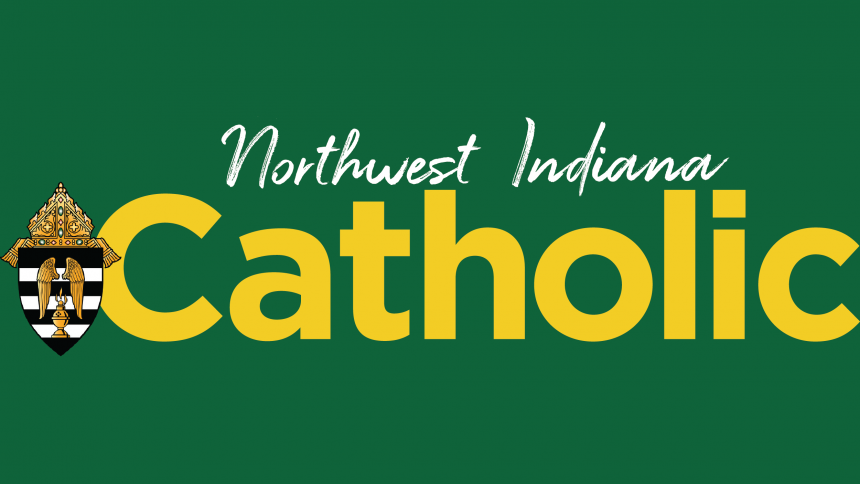
As published in the Northwest Indiana Catholic on October 30, 2016
Two weeks ago, I participated in the bi-annual Priests’ Convocation, a four day gathering of our priests to reflect on a particular topic, pray, socialize and relax together. It was my first one, so I was looking forward to it with great expectations.
Terry Sullivan, who works for Guest House, a treatment center for priests who suffer addictions, spoke to us about embracing a healthy lifestyle.
Not surprisingly, Terry devoted much of his talks to addictions and the 12 step process of Alcoholics Anonymous, which have helped millions to overcome their addictions and go on to live balanced and happy lives.
When you think about it, all of us are addicted to something, tempted to fill the holes in our lives with alcohol, drugs, money, material things, overwork, television, computer time or food. Only when we awaken to our powerlessness over particular situations - things and relationships in our lives that have become unhealthy - can we begin to move towards surrender and freedom.
In Chapter 12 of his Second Letter to the Corinthians, Saint Paul admits that some “thorn in the flesh” plagued and defeated him. After praying for it to go away, (whatever it was, Paul doesn’t say,) he surrenders it to the Lord, acknowledging his weakness and total dependence on God.
Paradoxically, Paul finds liberation in this admission of failure, for God’s power is made manifest in human weakness. In the apostle’s experience lies a great lesson for us. How often we try to force a change of behavior in someone else or even within ourselves, to no avail?
We try to effect transformation with a hammer of will and determination, only to end in defeat and anger. Only when we admit our powerlessness and lack of control, can the grace of God work precisely in our acknowledged weakness. We cannot change anyone except ourselves and then, only with gentleness and surrender.
In handing our lives over to the Lord, we humbly profess that God is God and we are not. Easier said than done!
How often in prayer are we really asking God to do our will, to see things our way, rather than, like Jesus in the Garden of Gethsemane, handing our will and heart over to the Father. Our need to control, to possess, to bend other people to our point of view and opinions about everything is so strongly rooted in us that we are almost unaware of it.
When we don’t get our way, which is almost a constant occurrence, we turn towards a quick fix to blur our anger, fear and depression, so that we can still feel in control and powerful. While feeding addictions initially gives us those good feelings we crave, the tables are soon reversed and we find ourselves serving alcohol, food, money or whatever we turn to in our emptiness besides God.
The whole process of conversion outlined by Jesus in the Gospels is a path of surrender, humility and prayer, whereby we allow God to dethrone the imperious demands of the false self, that inner voice that is constantly judging, planning, complaining, criticizing, controlling, that part of us which is usually angry and fearful. When we hand our lives over to God and stop thinking we are the center of the universe, life gets a whole lot better - more joyful, peaceful, loving and deep. The saints act out this path of spiritual liberation, whereby they are set free to do the works of the Kingdom.
At the convocation, Terry told us that a good sign that someone is on the road to recovery is the presence of gratitude. When we are angry, fearful and filled with resentment, little room exists for love and thanksgiving. Being authentically grateful manifests an inner liberation whereby we can truly see the wonders and blessings of our lives with the clear vision of grace.
Until we can let go of the wounds and hurts of the past, break away from toxic relationships and substances, surrender the poison of shame, regret and anger, be able to forgive both ourselves and others, we will not be fully free to become the people that God has called us to be. Until we have somehow embraced our true selves, we will not be able to give ourselves away in service, sacrifice and love.
As you can see, the convocation was fruitful! I am grateful for the time spent with our priests. They are good men who have given their lives to the service of Christ and the Church. Many of them are overworked and tired. Nevertheless, they tirelessly proclaim the Gospel to us, celebrate the sacraments of God’s grace and pastor us through the joys, challenges and sorrows of this life. Theirs is not an easy task but they embrace and live it with sacrifice and goodness.
Maybe, we could all take a moment this week to write a note to our priests, telling them of our love and gratitude. I love, admire and thank our priests for the blessing they are to this diocese and to me. Being with them for four days just reinforced what I have felt about them from the beginning!
+ Donald J. Hying
